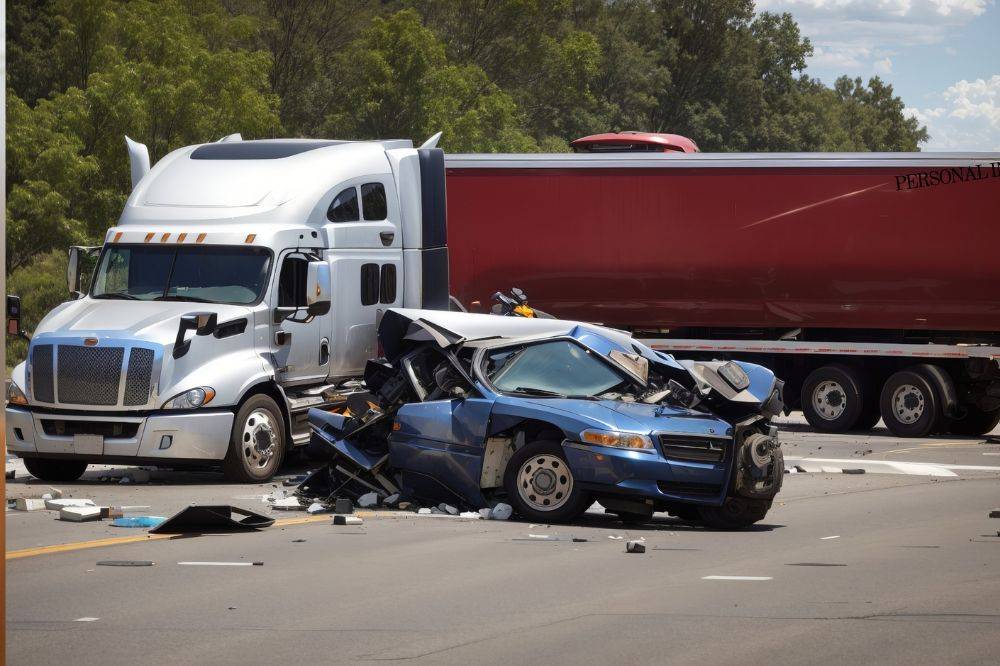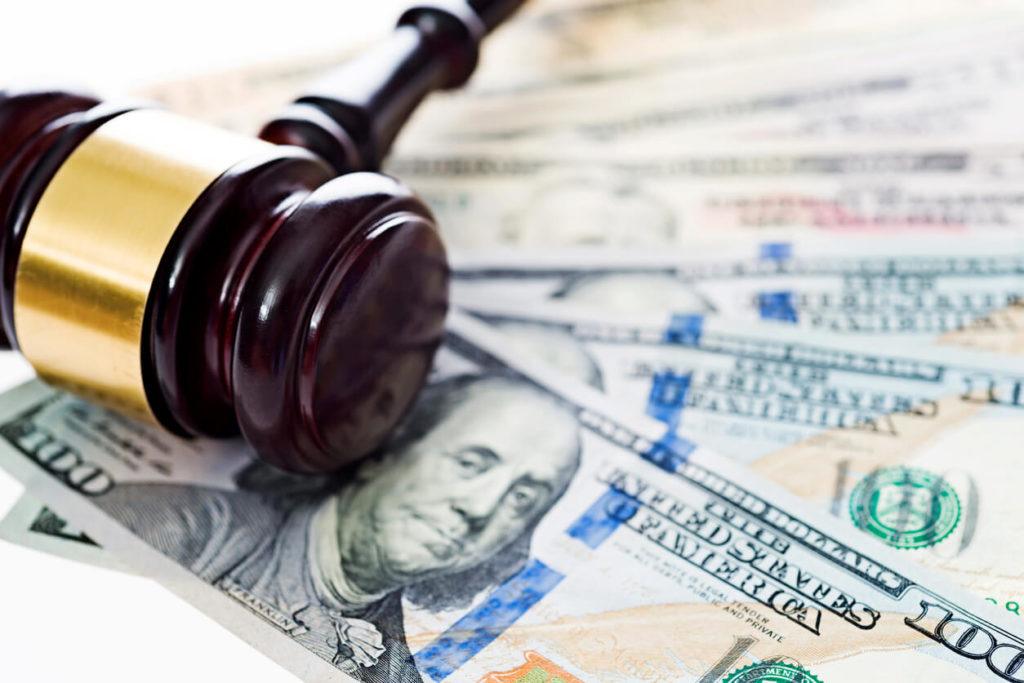At Genco Injury Attorneys we know how to take on big insurance companies. If you have been hurt in a motor vehicle accident due to another driver’s carelessness, call us right away. Denver car accident lawyer Dominic Genco has over a decade of documented success fighting for the financial rights of auto accident victims. During that time he has won tens of millions of dollars for injury clients. Today’s article touches on the potential benefits of hiring a Denver car crash attorney to file an auto accident injury claim. Please read today’s article to learn more about our Denver car accident attorneys. Or, if you would like to talk to a Denver car crash lawyer now, dial (303) 500-1376.
If you’re considering hiring a Denver car crash attorney to file an auto accident injury claim let us help you. The call is free, the consultation is free, and we only get paid if you get paid money first. Below, you will find information regarding the following topics:
- How Much Does a Denver Car Accident Attorney Charge?
- How Does Rental Car Coverage Work After an Accident Injury?
- What if I am too Hurt to Work After a Car Crash?
- What Happens if the Insurance Company Denies my Claim?
- Should I seek Medical Attention After a Car Crash?
- What Happens if the Person Who Hit me Doesn’t Have Auto Insurance?
- What Happens if I am Hit by a Commercial Truck?
- How Long Does it Take to Get Paid After Filing an Auto Accident Injury Claim?
Remember, at any time, if you need to talk to an accident attorney click here or call us directly.
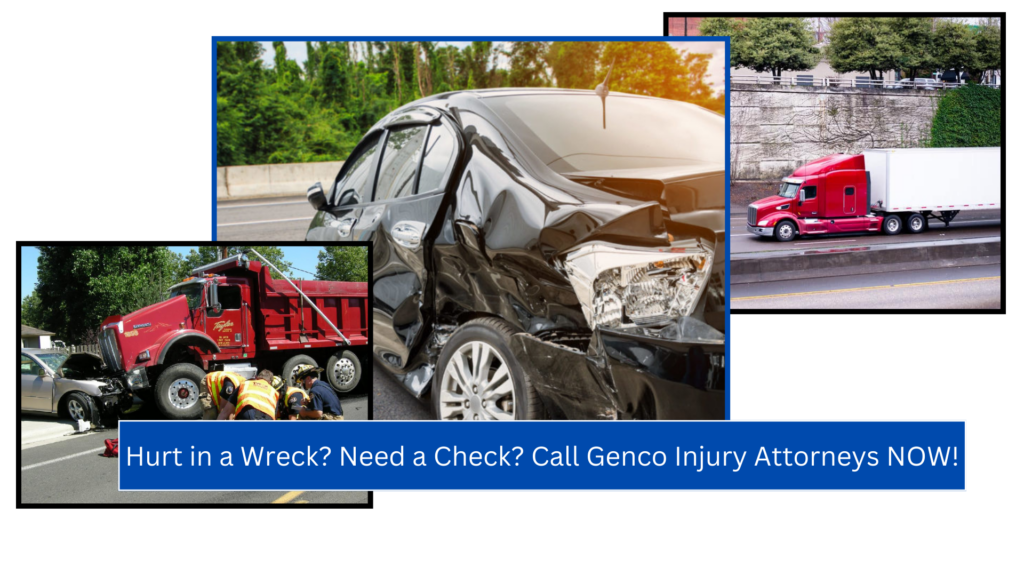
Benefits to Hiring a Denver Car Crash Attorney and Answers to Common Questions
We get it, we understand. You’ve been hurt in an auto accident, you are upset, and you want answers. Our Denver car accident lawyers always provide free consultations. We never rush a caller, and we take time to answer all of your questions. In addition, we are open 24 hours a day, 7 days a week. Car accidents don’t just happen Monday through Friday during regular business hours. That’s why our law firm always has team members ready to answer your call. Let’s go deeper into the potential benefits of hiring a Denver car crash attorney. In addition, we’re going to try to answer some commonly asked questions. As always, please remember our website does not provide legal advice. If you want to talk to an attorney, call us at (303) 500-1376.
How Much Does a Denver Car Accident Attorney Charge?
When considering hiring a Denver car accident attorney, understanding the fee structure is crucial. Most attorneys in this field operate on a contingency fee basis. This means that the attorney’s fees are contingent upon winning the case or securing a settlement. Here’s a more detailed look at what this entails:
Contingency Fee Structure
- Percentage of Recovery: Typically, Denver car accident attorneys charge between 33% to 40% of the total recovery amount. This percentage is agreed upon before the attorney takes on your case. For instance, if you recover $100,000 in a settlement, the attorney’s fee would range from $33,000 to $40,000.
- No Upfront Costs: One of the primary benefits of a contingency fee arrangement is that it allows individuals to hire legal representation without any upfront costs. This is particularly beneficial for accident victims who may be facing financial strain due to medical bills and lost wages.
- Incentive for Success: Since the attorney’s payment is directly tied to the outcome of the case, there is a strong incentive for them to work diligently to secure the maximum possible compensation for you. This alignment of interests can be reassuring for clients.
Additional Costs
While the contingency fee covers the attorney’s payment, there may be additional costs associated with pursuing a claim. These can include:
- Court Fees: Filing fees and other court-related expenses.
- Expert Witness Fees: Costs for hiring experts to testify or provide reports.
- Investigation Costs: Expenses related to gathering evidence, such as accident reconstruction or obtaining medical records.
These costs are typically deducted from the final settlement or award, but it’s important to discuss them with your attorney upfront to understand how they will be handled.
Negotiating Fees
It’s possible to negotiate the contingency fee percentage with your attorney. Factors that might influence the fee include the complexity of the case, the likelihood of success, and the amount of work anticipated. Some attorneys may offer a sliding scale, where the percentage decreases if the case is resolved quickly or increases if it goes to trial.
Transparency and Agreement
Before hiring an attorney, ensure that you have a clear understanding of the fee structure. A written agreement should outline the percentage charged, any additional costs, and how they will be handled. This transparency helps prevent misunderstandings and ensures that both parties are on the same page. By understanding the fee structure and potential costs involved, you can make an informed decision when hiring a Denver car accident attorney, ensuring that you have the best possible representation for your case.
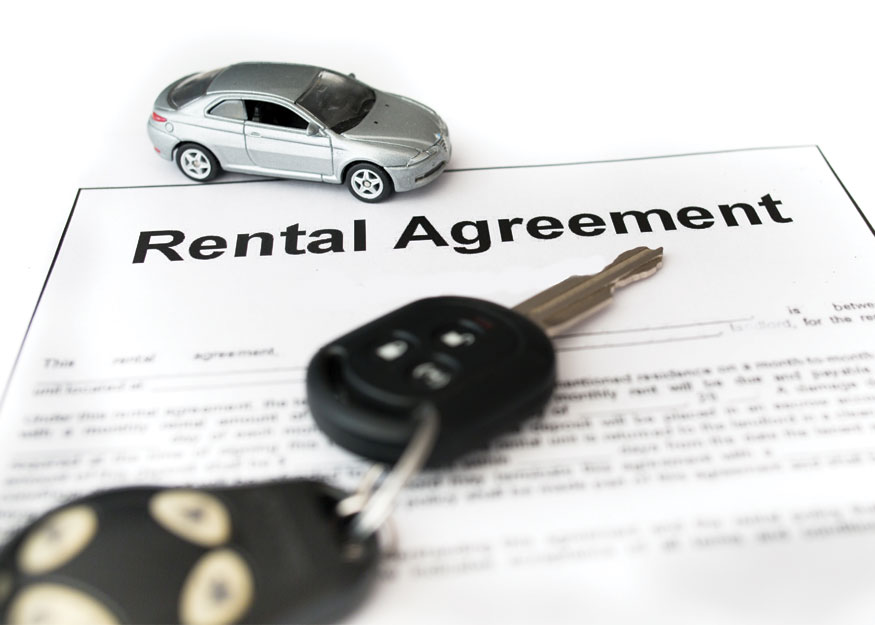
How Does Rental Car Coverage Work After an Accident Injury?
Understanding how rental car coverage works after an accident is essential for ensuring you have transportation while your vehicle is being repaired. Here’s a detailed look at how this coverage typically operates:
Types of Rental Car Coverage
- Rental Reimbursement Coverage: This is an optional add-on to your auto insurance policy that covers the cost of renting a vehicle if your car is in the shop due to a covered accident. It usually has a daily limit (e.g., $30 per day) and a maximum payout (e.g., $900 total).
- Liability Coverage: If the accident was not your fault, the at-fault driver’s insurance might cover your rental car expenses. However, this process can take time, and you may need to pay upfront and seek reimbursement later.
- Credit Card Benefits: Some credit cards offer rental car coverage as a perk. This coverage often applies if you use the card to pay for the rental, but it may have limitations and exclusions.
Steps to Take After an Accident
- Contact Your Insurance Company: Immediately after an accident, notify your insurer to start the claims process. Ask about your rental car coverage and any steps you need to take to activate it.
- Pre-Approval: Some insurance companies require pre-approval before you rent a vehicle. This means you need to get authorization from your insurer to ensure the rental costs will be covered.
- Choose a Rental Car Provider: Your insurance company may have preferred rental car providers. Using these providers can simplify the billing process, as they often bill the insurer directly.
- Understand Your Limits: Be aware of the daily and total limits of your rental car coverage. If you exceed these limits, you will be responsible for the additional costs.
Common Considerations
- Duration of Coverage: Rental car coverage typically lasts until your vehicle is repaired or declared a total loss. However, there may be a time limit (e.g., 30 days), so it’s important to understand the terms of your policy.
- Type of Vehicle: Coverage usually applies to a standard rental car. If you choose a more expensive vehicle, you may need to pay the difference out of pocket.
- Documentation: Keep all receipts and documentation related to the rental car. This will be important if you need to seek reimbursement or if there are any disputes about coverage.
Potential Challenges
- Delays in Approval: Sometimes, there can be delays in getting approval for a rental car, especially if there are disputes about fault or coverage. It’s important to stay in communication with your insurer and provide any requested information promptly.
- Out-of-Pocket Expenses: If you need a rental car immediately and your coverage requires pre-approval, you might have to pay upfront and seek reimbursement later. Ensure you understand the reimbursement process and keep all necessary documentation.
By understanding how rental car coverage works and taking the appropriate steps after an accident, you can ensure that you have the necessary transportation while your vehicle is being repaired, minimizing disruption to your daily life.

What if I am too Hurt to Work After a Car Crash?
Being unable to work due to injuries sustained in a car crash can be a daunting experience, both emotionally and financially. However, there are steps you can take to seek compensation for lost wages and ensure your financial stability during recovery. Here’s a detailed guide on what to do if you’re too hurt to work after a car crash:
Steps to Take Immediately After the Accident
- Seek Medical Attention: Your health is the top priority. Seek immediate medical attention for your injuries, even if they seem minor at first. A thorough medical evaluation will not only ensure you receive the necessary treatment but also provide documentation of your injuries, which is crucial for any claims.
- Document Your Injuries: Keep detailed records of all medical treatments, diagnoses, and any prescribed medications or therapies. This documentation will be essential when proving the extent of your injuries and their impact on your ability to work.
- Notify Your Employer: Inform your employer about your situation as soon as possible. Provide them with any necessary documentation from your healthcare provider regarding your inability to work.
Compensation for Lost Wages
- Personal Injury Claim: If the accident was caused by another party’s negligence, you might be entitled to file a personal injury claim. This claim can cover lost wages, medical expenses, and other damages. An experienced personal injury attorney can help you navigate this process.
- Insurance Claims: Depending on your insurance policy and the circumstances of the accident, you may be able to claim lost wages through your own insurance or the at-fault party’s insurance. This often involves providing proof of income and documentation of your inability to work.
- Disability Benefits: If your injuries are severe and long-term, you may qualify for disability benefits. These can be through your employer’s disability insurance, state disability programs, or Social Security Disability Insurance (SSDI).
Working with an Attorney
- Consult a Personal Injury Attorney: An attorney specializing in personal injury law can provide invaluable assistance. They can help gather evidence, negotiate with insurance companies, and ensure you receive fair compensation for your lost wages and other damages.
- Document Everything: Work closely with your attorney to document all aspects of your case. This includes medical records, communication with your employer, and any correspondence with insurance companies.
- Calculate Lost Wages: Your attorney can help calculate the full extent of your lost wages, including potential future earnings if your injuries have long-term effects on your ability to work.
Additional Considerations
- Pain and Suffering: In addition to lost wages, you may be entitled to compensation for pain and suffering, emotional distress, and loss of enjoyment of life. These are more subjective damages and require thorough documentation and legal expertise to quantify.
- Return to Work: Once you are medically cleared to return to work, communicate with your employer about any necessary accommodations or modifications to your duties, especially if you have ongoing limitations due to your injuries.
For more guidance on handling legal matters related to being unable to work after a car crash, you can refer to the Colorado Courts Self Help Guide, which provides resources and information on navigating the legal system.
By taking these steps and working with a knowledgeable attorney, you can focus on your recovery while ensuring that your financial needs are addressed during this challenging time.
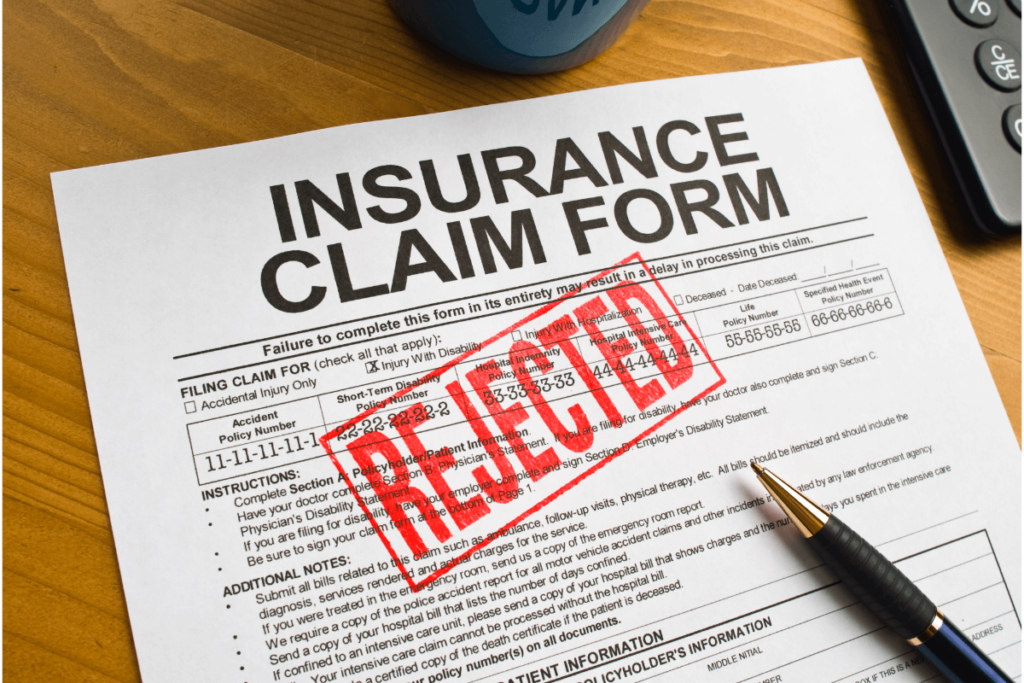
What Happens if the Insurance Company Denies my Claim?
How Long Does it Take to Get Paid After Filing an Auto Accident Injury Claim?
Filing an auto accident injury claim is often the first step towards receiving compensation for damages and injuries sustained in a car accident. However, the timeline for receiving payment can vary significantly based on several factors. Here’s a detailed look at what influences the duration and what you can expect:
Factors Affecting the Timeline
- Complexity of the Case:
- Severity of Injuries: More severe injuries may require extensive medical treatment and documentation, which can prolong the claims process.
- Liability Disputes: If there is any dispute over who was at fault, it can delay the resolution of the claim as investigations are conducted.
- Insurance Company Processes:
- Initial Investigation: Insurance companies will conduct their own investigations to verify the details of the accident and the extent of the injuries. This can take time, especially if multiple parties are involved.
- Negotiations: Once the investigation is complete, negotiations between your attorney and the insurance company can also extend the timeline, particularly if there are disagreements over the settlement amount.
- Documentation and Evidence:
- Gathering Evidence: Collecting all necessary documentation, such as medical records, police reports, and witness statements, is crucial but can be time-consuming.
- Medical Evaluations: Sometimes, additional medical evaluations are required to fully understand the extent of injuries, which can add to the timeline.
- Legal Proceedings:
- Filing a Lawsuit: If a fair settlement cannot be reached, filing a lawsuit may be necessary. This can significantly extend the timeline, as court cases can take months or even years to resolve.
- Court Schedules: The availability of court dates and the length of the trial process can also impact how long it takes to receive compensation.
Average Timeline
- Simple Cases: For straightforward cases where liability is clear and injuries are minor, the process can take a few weeks to a couple of months.
- Moderate Cases: Cases with moderate injuries and some disputes may take several months to resolve.
- Complex Cases: Involving severe injuries, significant disputes, or legal proceedings, these cases can take a year or more to reach a conclusion.
Steps to Expedite the Process
- Prompt Reporting: Report the accident to your insurance company as soon as possible to initiate the claims process.
- Organized Documentation: Keep all documents organized and readily available to provide to your attorney and the insurance company.
- Legal Representation: Hiring an experienced personal injury attorney can help navigate the complexities of the claims process and negotiate effectively with insurance companies.
- Open Communication: Maintain open communication with your attorney and respond promptly to any requests for information or documentation.
Final Considerations
- Patience and Persistence: While it can be frustrating to wait for compensation, patience and persistence are key. Rushing the process may result in accepting a lower settlement than you deserve.
- Understanding Settlement Offers: Be cautious of quick settlement offers from insurance companies, as they may not fully cover your expenses and future needs.
For more insights and guidance on the timeline for receiving compensation after filing an auto accident injury claim, you can visit The Law Place, which provides resources and legal advice on personal injury claims.
By understanding the factors involved and taking proactive steps, you can better manage your expectations and work towards a fair and timely resolution of your auto accident injury claim.
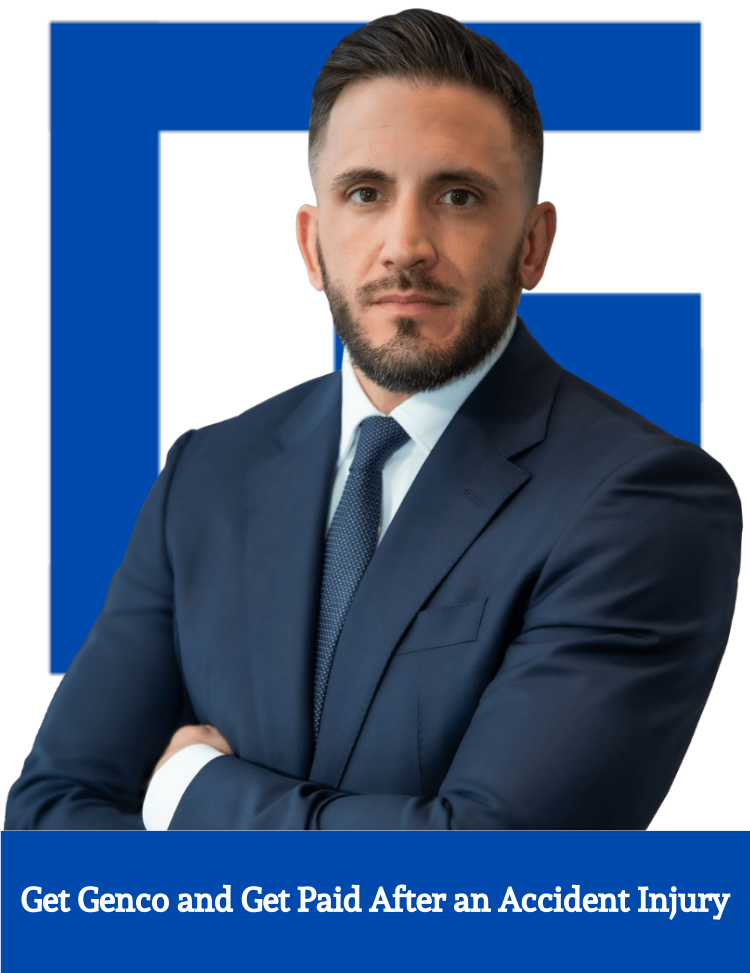
Genco Injury Attorneys – The Denver Car Accident Lawyers Who Fight For You After a Crash
When you’re involved in a car accident, the aftermath can be overwhelming. From dealing with injuries to navigating insurance claims, the process can be complex and stressful. This is where Genco Injury Attorneys come in. As experienced Denver car accident lawyers, they are dedicated to fighting for your rights and ensuring you receive the compensation you deserve.
Who Are Genco Injury Attorneys?
Genco Injury Attorneys is a reputable law firm based in Denver, specializing in personal injury cases, particularly car accidents. With a team of skilled and compassionate attorneys, they have built a strong reputation for providing personalized legal services and achieving favorable outcomes for their clients.
Why Choose Genco Injury Attorneys?
- Expertise in Car Accident Cases:
- The attorneys at Genco have extensive experience handling a wide range of car accident cases, from minor fender-benders to severe collisions involving catastrophic injuries.
- They understand the intricacies of Colorado traffic laws and insurance regulations, which allows them to effectively advocate for their clients.
- Client-Centered Approach:
- Genco Injury Attorneys prioritize their clients’ needs and well-being. They take the time to listen to your story, understand your concerns, and tailor their legal strategies to meet your specific goals.
- They offer compassionate support throughout the legal process, ensuring you feel informed and empowered every step of the way.
- Aggressive Representation:
- The firm is known for its aggressive approach in negotiations and litigation. They are not afraid to take on insurance companies and other parties to secure the maximum compensation for their clients.
- Whether through settlement or trial, Genco Injury Attorneys are committed to achieving the best possible outcome for you.
- Comprehensive Legal Services:
- From the initial consultation to the resolution of your case, Genco provides comprehensive legal services. This includes investigating the accident, gathering evidence, negotiating with insurance companies, and representing you in court if necessary.
What to Expect When Working with Genco Injury Attorneys
- Free Consultation:
- Genco offers a free initial consultation to evaluate your case and discuss your legal options. This allows you to understand the potential value of your claim without any financial obligation.
- No Upfront Fees:
- The firm operates on a contingency fee basis, meaning you don’t pay any legal fees unless they win your case. This ensures that you can access quality legal representation regardless of your financial situation.
- Thorough Investigation:
- The attorneys conduct a thorough investigation of the accident, including reviewing police reports, interviewing witnesses, and consulting with experts if necessary. This comprehensive approach helps build a strong case on your behalf.
- Clear Communication:
- Genco Injury Attorneys maintain open and transparent communication with their clients. They keep you informed about the progress of your case and are always available to answer any questions or concerns you may have.
Contact Genco Injury Attorneys
If you or a loved one has been involved in a car accident in Denver, don’t hesitate to reach out to Genco Injury Attorneys. Their team is ready to fight for your rights and help you navigate the legal process with confidence. You can contact them through their website or by phone to schedule your free consultation and take the first step towards securing the compensation you deserve.
By choosing Genco Injury Attorneys, you are partnering with a dedicated team of legal professionals who are committed to standing by your side and advocating for your best interests after a car accident.












